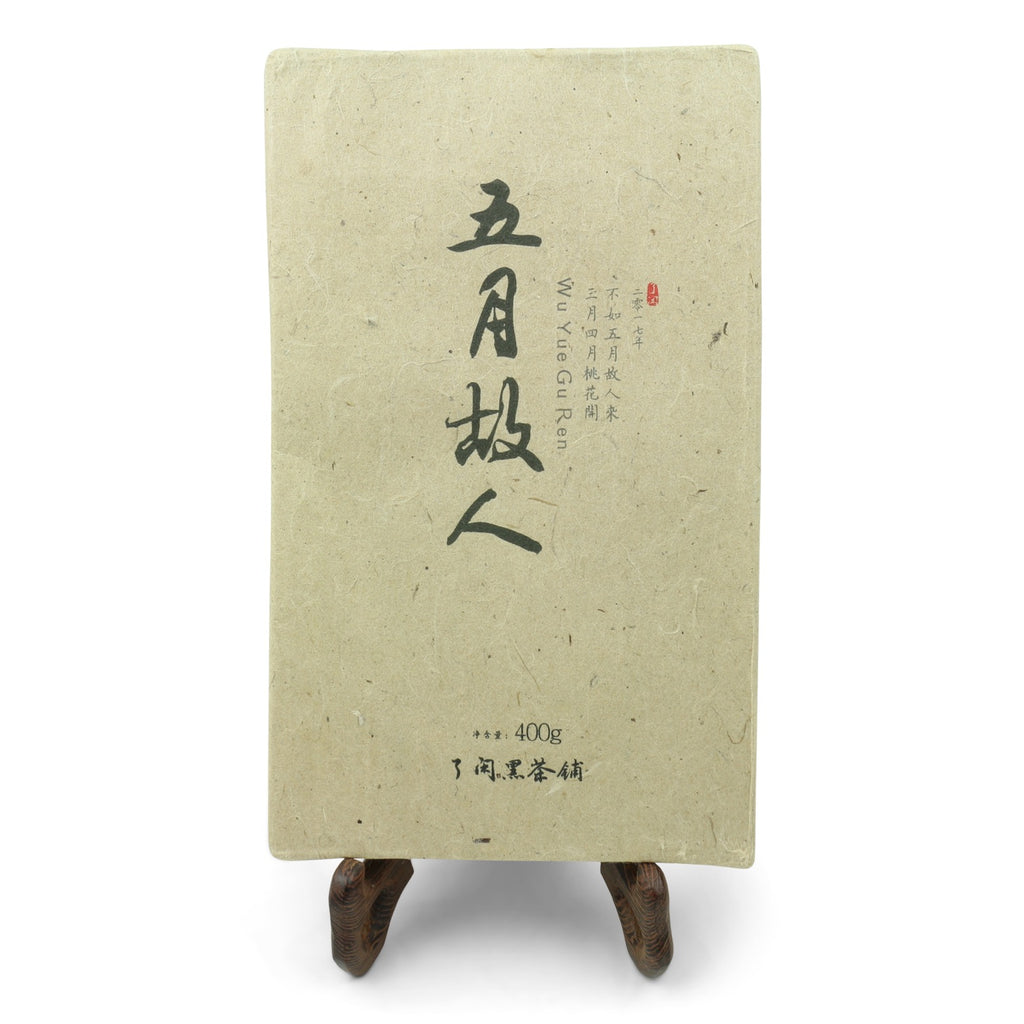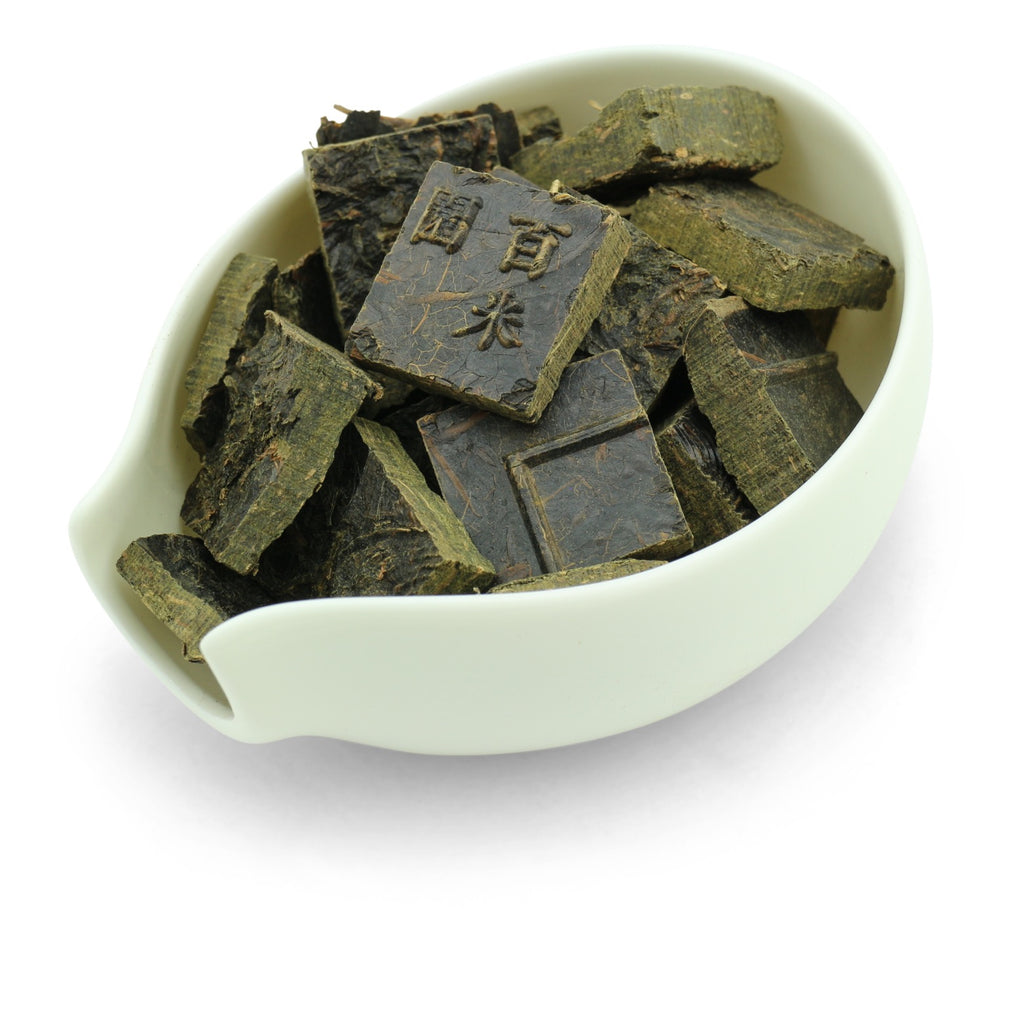Lao Shu Hei Zhuan 2017
Resembling a cacao block, compressed post-fermented tea designates its own zhuan cha (‘brick tea’) category. Unlike others of its type, this hei cha is a tight construction and pre-portioned for a dousing in the hottest water. But the impression comes much earlier than this. Already by opening the pouch of these morsels of tea do we take an uplifting dip in a pot of tiger balm, finding oneself immersed in the oily soup of camphor, licorice root, and cane sugar; with the first and (never-ending) subsequent brews. How these aromas have wound up here is perhaps a worthy ponder in the bath of its remedial delicacies.
About the producer
We were approached by Huang Xiaofeng, who runs a small-scale tea company in Anhua, with a portfolio of quality heicha or dark teas from the alpine forests of the region. Their focus on local tradition and authentic techniques took our intrigue immediately that we decided to source a bunch of heichas to take on an exploration of a tea category lesser known to us. The raw materials are sourced from their 100-acre Laocong old tea garden, a biodynamic environment more than 700m deep in the mountains and far away from local villages and roads.
 Image to the right: Huang Xiaofeng tending to fixed tea; image to the left: Tea farmers carrying their pickings down the mountain.
Image to the right: Huang Xiaofeng tending to fixed tea; image to the left: Tea farmers carrying their pickings down the mountain.- ORIGIN: Gaomaerxi, Anhua, Yiyang, Hunan, China
- MEANING: Old tree black brick (lao shu hei zhuan)
- CULTIVAR: Anhua qun ti zhong
- HARVEST TIME: 2017
- TASTE: Camphor, licorice root, cane sugar
- Quantity: 6g / 500ml
- Water temperature: 100°C
- Infusion time: 6 min
- Quantity: 5g / 100ml
- Water temperature: 100°C
- Several short infusions
After an initial rinse, start with few seconds. Increase the brewing time at each following infusion. Exception: If the leaves are pressed, make the first infusion longer than the second. For best results in gongfu cha, brew in a Yixing teapot.







